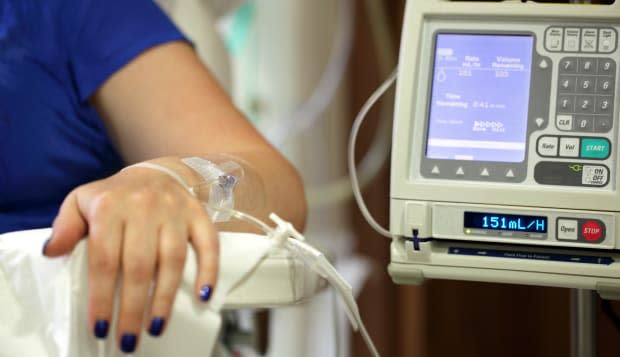Fighting Cancer, Living to Face the Job Search

October was Breast Cancer Awareness Month, and with it we got the usual mix of corporate initiatives and viral campaigns, all pitched toward raising money and bringing an important issue into the limelight. But amid all the ubiquitous pink ribbons, it's oddly easy to forget about the actual people whose lives have been rocked by cancer, as well as the difficult questions that might never occur to people who haven't lived with it themselves. Chief among those: how are you supposed to live with cancer and hold (or find) a job simultaneously?
That's a question that Rebecca Nellis, who serves as Vice President of Programs and Strategy at the nonprofit organization Cancer and Careers, is dedicated to answering as honestly and practically as possible. A veteran of the nonprofit world, she travels the country speaking to cancer patients who are struggling to rectify their diagnoses with their responsibilities as professionals. As she's acutely aware, it's a question without an easy, one-size-fits-all answer.
"I'm not going to say that there's a solution for literally every job type and every person so that they can work through treatment," Nellis told AOL Jobs. "But I will tell you, having done this as long as I have, that I've heard amazing stories."
Founded 2001, Cancer and Careers is an organization that helps people who have been diagnosed with cancer navigate the job world, whether they're in the early stages of a diagnosis, undergoing treatment, or returning to their normal lives as cancer survivors. As a career resource, it offers patients much-needed strategies for a myriad of work-related issues, from revealing a diagnosis to your employer to explaining the lengthy gap on your resumé.
"The diagnosis brings up a whole host of questions about oneself and one's life, and work plays a very big role in that. We meet new people and say, 'What do you do?' And then we find out what the answer to that is, and we feel that we've learned something sort of profound about that person," said Nellis. "And so I think when a person is diagnosed, figuring out how that fits into the rest of their life becomes a huge part of the equation, and work is right at the top of that list."
For the currently employed, that typically means having a solid understanding of your workplace's culture, and how best to broach situations arising from a cancer diagnosis. Nellis sketched out a typical situation: an employee undergoing treatment found that she was nauseous at work during certain times of day, but hadn't experienced any nausea at home during the same hours on the weekend. It turned out that her office was located next to the building's cafeteria, and the odors were exacerbating symptoms she had otherwise avoided. All it took was switching offices with another worker to alleviate the situation.
Sometimes, though, answer isn't so straightforward. The job search in particular presents unique challenges to cancer patients, who are easily pigeonholed as just that--rather than qualified candidates in their own right. And while many of the skills Cancer and Careers focuses on are the same ones used by most job seekers--nailing your cover letter, wowing an interviewer--they also teach strategies to turn the conversation away from a cancer diagnosis and toward issues more relevant to the job at hand.
"Most people don't go to a job interview and talk about their annoying habits, or if they're diabetic," said Nellis. "These aren't things anyone else is sharing in an interview environment. No one walks in and says 'I have high blood pressure, but you should hire me anyway.'"
In a few key ways, though, things might be getting easier. The increasing acceptance of telecommuting has made working remotely a more viable option for employees in the midst of treatment--although that possibility may not apply to someone who works behind a cash register, for instance. And Cancer and Careers makes a point of educating employers along with patients, as well as healthcare professionals who may not have considered the anxiety that can accompany a job search.
Ultimately, Nellis said, there needs to be an honest, trusting conversation between patients and their employers about accommodations that make sense for both sides--or if you're a job seeker, a way to keep hiring parties focused on the qualities that matter in a candidate. Of course, these are difficult conversations--you go ahead and try getting your office swapped--but they're necessary ones, especially when it's easy to treat cancer as a distant, abstract thing divorced from the day-to-day realities faced by any working person.
"For some people, work is really about a paycheck and access to health insurance, but for a lot of people it's also about their identity," said Nellis. "We like to encourage people not to assume that there isn't a solution, but rather exhaust all the options."

